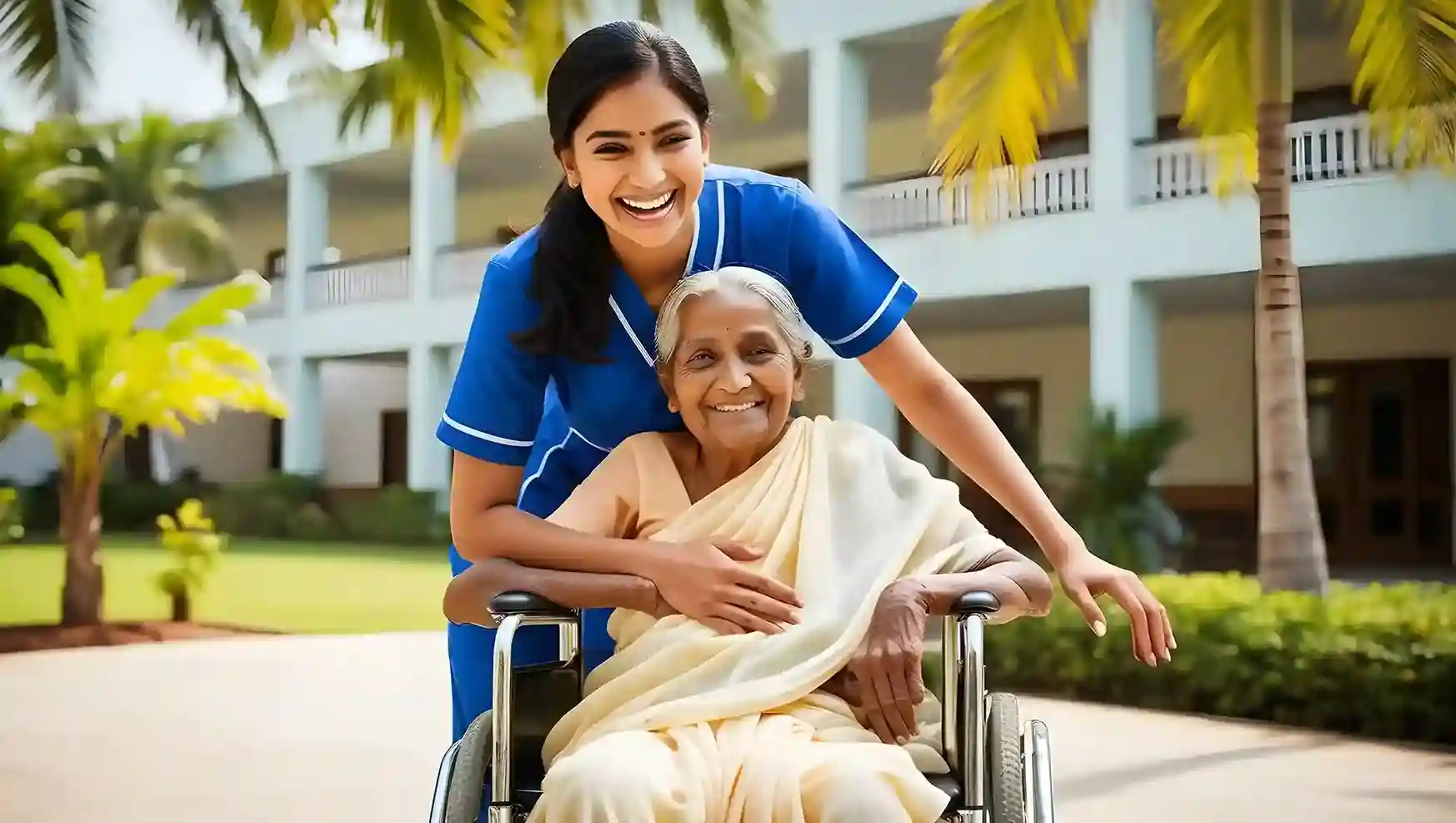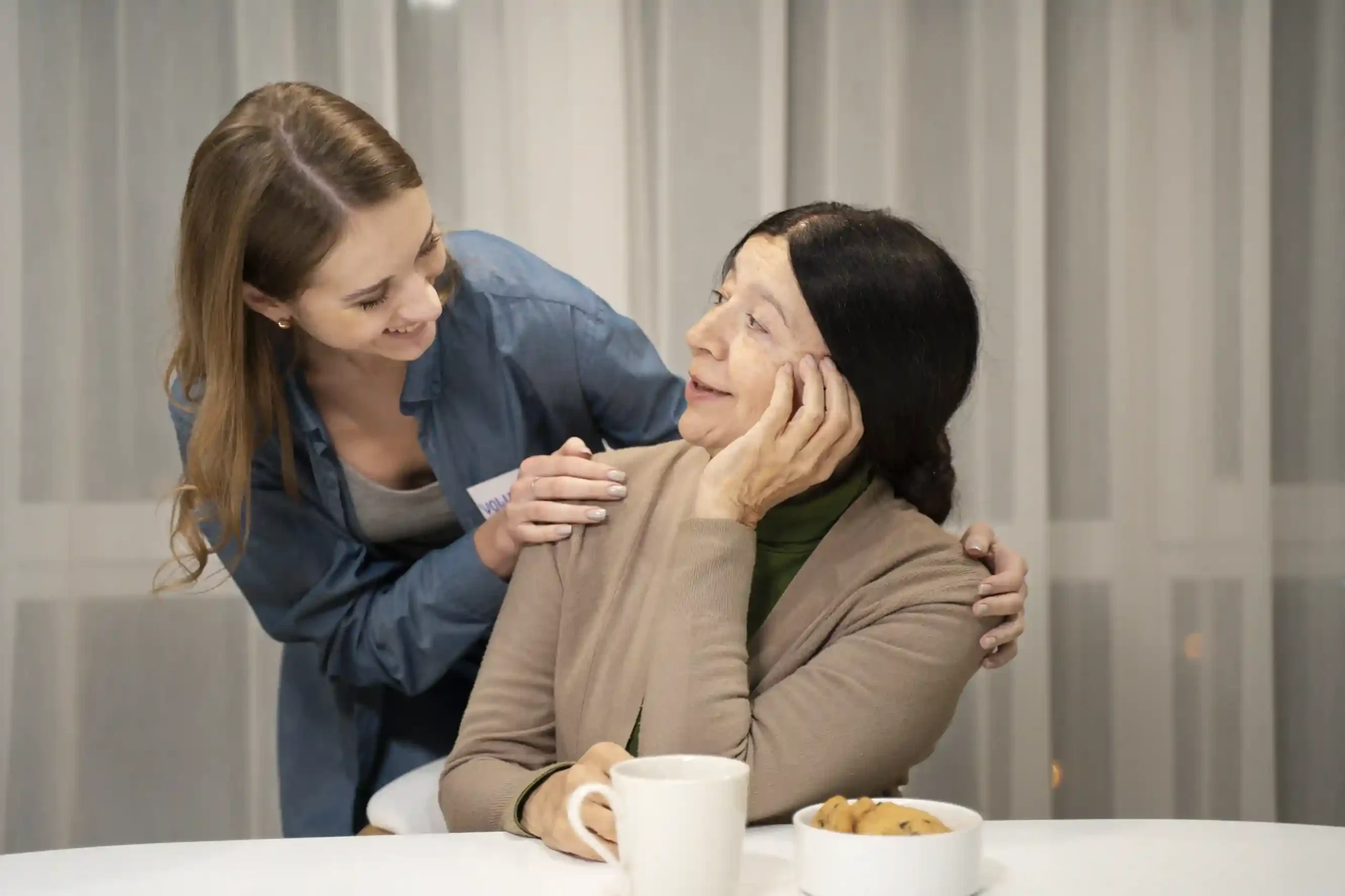In Indian culture, caring for elders is often seen as a sacred duty-a beautiful act of seva that connects the generations and keeps the family bonds strong. Behind this deep sense of responsibility, however, many caregivers silently bear an often-heavy emotional and physical burden. Whether you are caring for an aging parent, a sick spouse, or another family member, it is natural at times to feel exhausted, lonely, or even guilty for feeling tired.
As someone who deeply values family, you probably keep telling yourself, “I should not complain; it’s my duty.” But this constant giving can sap your energy slowly until you are emotionally empty. EaR understands that a person caring for others also needs care. Emotional support for caregivers at EaR involves a safe and non-judgmental environment in which you can express, heal, and recharge because your well-being matters too.

1. A Safe Space for Indian Caregivers: Seva aur Self-Care
When one is always busy taking care of someone else, their feelings are put aside. You may not have the time or energy to stop and reflect on how you really feel. And that is where our emotional support for caregivers comes in.
Individual sessions have been specifically designed to help these caregivers share the frustration, grief, fear, and exhaustion they have bottled up inside them. Indian families expect family members to keep serving without showing weakness. But deep inside, many are feeling alone, emotionally drained, and at a loss about how to cope.
The Problem
In our society, “seva” is looked upon as pure and selfless — and it truly is. But it often has an unwritten rule: do not think about yourself. Caregivers struggle hard between their duty of seva and their own need for self-care. They may end up feeling selfish for needing rest or wanting time to themselves. Over time, this sets in emotional fatigue and silent suffering.
The benefit
Our Self-Care sessions provide a non-judgmental platform to discuss these feelings openly. You can talk about your apprehensions here without one telling you to “just manage” or “stay strong.” We listen with empathy and understanding. Such emotional support for caregivers reduces feelings of isolation, guilt, and helplessness among them. When you are heard, the emotional burden subsides, and your strength for the care of your loved ones will increase.
True serving starts with self-awareness and compassion, not just for others but with regard to the self.

2. Managing Caregiver Stress & Burnout
Caregiving is not only emotionally demanding but physically draining. Whether full-time caretaking or juggling between work and home, your mind and body are always on alert. And that gradually leads to caregiver stress and burnout.
We at EaR run special sessions that enlist practical and simple techniques for dealing with caregiver stress and burnout. These are not motivational speeches but personalized tools that help one get balance in their daily life.
What It Is
These sessions teach you how stress works with your emotions, relationships, and health. You will learn to set healthy boundaries, improve interactions within the family, and take small breaks for yourself without guilt.
Who It’s For
The forum is meant for the primary caregiver in the family setup, who often has to bear the largest amount of responsibility and stress. Whether you’re a parent caring for your own parents or a spouse caring for a partner, know that you deserve to feel supported and understood.
The Problem
In many Indian families, both in a joint-family setup and a nuclear one, the caregiver gets very little help from other family members. The others may not be able to understand the emotional and physical toll taken by caregiving. Besides that, there is a strong cultural expectation that “you should be able to handle it all.” This can lead to severe exhaustion, anxiety, and feelings of guilt.
The Benefit
Caregiving is not only emotionally demanding but physically draining. Whether full-time caretaking or juggling between work and home, your mind and body are always on alert. And that gradually leads to caregiver stress and burnout.
We at EaR run special sessions that enlist practical and simple techniques for dealing with caregiver stress and burnout. These are not motivational speeches but personalized tools that help one get balance in their daily life.
What It Is
These sessions teach you how stress works with your emotions, relationships, and health. You will learn to set healthy boundaries, improve interactions within the family, and take small breaks for yourself without guilt.
Who It’s For
The forum is meant for the primary caregiver in the family setup, who often has to bear the largest amount of responsibility and stress. Whether you’re a parent caring for your own parents or a spouse caring for a partner, know that you deserve to feel supported and understood.
The Problem
In many Indian families, both in a joint-family setup and a nuclear one, the caregiver gets very little help from other family members. The others may not be able to understand the emotional and physical toll taken by caregiving. Besides that, there is a strong cultural expectation that “you should be able to handle it all.” This can lead to severe exhaustion, anxiety, and feelings of guilt.
The Benefit
These sessions teach you practical coping strategies and tools for stress management, enabling you to stay emotionally stable and healthy. You understand very well that you cannot pour from an empty cup, and taking care of oneself is not selfish; rather, it is essential.

Some of the tools you may explore include:
- Simple breathing and relaxation techniques to manage anxiety.
- Ways to establish healthy emotional boundaries with one’s family.
- Gentle self-care rituals that fit into your routine.
- Learn to ask for and accept help without guilt.
As you learn to attend to your own emotional needs, you will be of service to others with more peace, patience, and strength.
Key 1: Acknowledge Your Emotions
The first step to taking care of yourself is acknowledging your feelings. Many caregivers suppress their emotions, as showing sadness or anger can be a sign of weakness in their minds. But your feelings deserve a place too. When you acknowledge those feelings with no judgment, the healing begins. Talking to a professional who gives caregiver emotional support will help you put words to what’s been bothering you and lighten the burden you have carried for so long.
Key 2: Ask for Help
Family members are very reluctant to ask for help because they don’t want to be a burden to others. But caregiving is not a one-person operation, and asking for help is not a sign of failure-it’s a step toward balance. Friends, neighbors, and siblings can share small responsibilities. And remember, emotional support for caregivers is also helpful which can restore your inner strength and prevent burnout.
Key 3: Set Healthy Boundaries
You cannot be available every minute of every day. It is all right to take a little break or say no when you are overwhelmed. Setting healthy boundaries helps you recharge without guilt. When you respect your own limits, you can give care more effectively and lovingly.
Key 4: Reconnecting with Oneself
It’s easy to forget who you are beyond your caregiving role. Try to do one small thing daily that makes you happy: reading, listening to music, going for a walk, or simply sitting quietly. Self-care doesn’t need to be huge; it just needs to be consistent.
Key 5: Seek Professional Guidance
Sometimes, no matter how hard you try, the stress and sadness feel overwhelming. That is where emotional support for caregivers can make all the difference. Through Emotional Ability Resources, we support the caregivers in rebuilding emotional balance through facilitated sessions focused on mental well-being, releasing stress, and self-compassion. You learn how to take care of yourself while taking care of others.

Why Caregiver Emotional Support Matters
Care giving is an act of love, but it needn’t be at the cost of your emotional well-being. After all, it is only when you take time to tend to your mind and heart that you will grow into a more resilient and much better person to give comfort to people around you.
Remember, providing emotional support for caregivers is not a luxury; it’s today’s necessity. Every caregiver deserves care, too. Whether it’s sheer exhaustion, emotional numbing, or deep feelings of guilt, support is available-and can restore your peace and sense of purpose.
At Emotional Ability Resources, we listen, support, and are here to walk with you. Call us today to find the understanding and support you truly deserve. Let us together ensure that your serving is imbued with strength, balance, and emotional peace.

